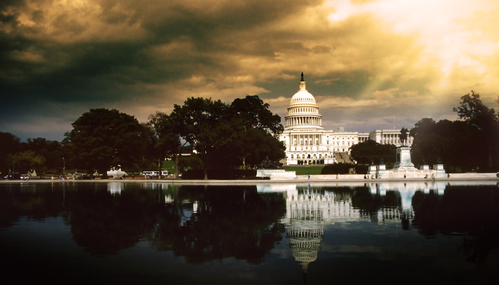
by Pierre Lemieux
We can suspect that the political problem will be solved with more horse-trading and continuing purchases of electoral support. But does politics solve or create the issue?
“Trump Faces Pressure to Choose Sides in Fight Between Corn Growers and Oil Refiners,” ran a title in the Wall Street Journal of April 25. These words summarize the predicament of the modern state.
Following a 2005 law, American oil refiners are obliged to mix about 10% ethanol into gasoline, officially for “energy independence” and environmental reasons. About a third of corn grown in America is diverted to ethanol production. More than four dozen other countries (including those of the European Union) now have similar requirements. This ethanol mandate, officially called the “renewable fuel standard,” imposes significant costs on refiners, but has been a boon to farmers who have seen increased corn demand and prices.
During the election campaign, President Donald Trump supported the ethanol mandate to satisfy his clientele in agricultural states. But like the Republican Party, he also has many backers in the oil refining industry. We can suspect that the political problem will be solved with more horse-trading and continuing purchases of electoral support. But does politics solve or create the issue?
A theoretical argument–which Trump and most people seem to confusedly believe–can be marshalled to argue for political solutions. It goes this way. A conflict of interest exists between corn farmers and refiners. It is the role of government to intervene one way or another to resolve such conflicts. Even a sophisticated academic like Harvard University’s Dani Rodrick claims that this is what government is for: “Democratic politics is messy and does not always get it ‘right,'” he admits. “But when we have to trade off different values and interests, there is nothing else on which to rely.” (I reviewed Rodrik’s latest book in Regulation, perhaps not charitably enough.) So, the argument concludes, it is for the government, and especially the President, to decide how to distribute the benefits and the burdens between corn growers and gasoline refiners.
The main reason why this argument is invalid is that there is something else than government intervention for resolving conflicts of interests. It is called economic freedom, that is, the freedom of consumers to buy what they want at prices each judge to be acceptable and, on the other side of the market, the freedom of producers to supply what consumers want. There is no need for government to take one side or the other among the citizens; it only needs to enforce general rules of voluntary contract and then let individuals interact freely on markets.
In this classical liberal approach, intervention to repeal previous government discrimination is, barring exceptions, the only justified sort of intervention. One cannot argue, except in a purely formal sense, that the government not intervening is an intervention (in favor of the status quo) as much as it is when it intervenes against the status quo. Both economic and moral reasons support the general rule expressed by the Marquis d’Argenson in his 1858 memoirs: “Laissez faire, morbleu! laissez faire!” (“Morbleu” is a French swear word.)
So there is an alternative to the government choosing between corn farmers and oil refiners: it is to let free enterprise answer consumer demand.
Even if it is shown that certain emissions from oil combustion create pollution externalities and that government intervention can cost no more than these externalities, the solution should involve general rules (like emission standards or carbon pricing) or general taxes (like carbon taxes). The solution should not involve the government deliberately choosing to favor one segment of society against another. And, it seems obvious, a single person–a Lider Maximo–should not be granted the power to make this choice.
Any other approach amounts to the government taking sides for some citizens against other citizens, actively discriminating in favor of a group of individuals against another group. This behavior characterizes what Anthony de Jasay calls “the adversary state,” which is the polar opposite of what he calls “the capitalist state”–his term for the minimal state (see his remarkable 1985 book The State, available online).
One does not need to embrace de Jasay’s conservative anarchism to condemn the idea that the president of the United States should matter-of-factly choose between corn growers and oil refiners. The classical liberal tradition teaches as much.

Comments are closed.